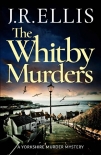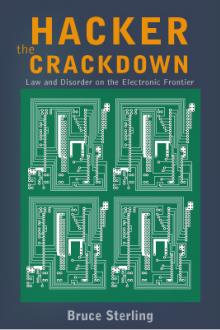The Whitby Murders (A Yorkshire Murder Mystery) J. Ellis (distant reading TXT) 📖

- Author: J. Ellis
Book online «The Whitby Murders (A Yorkshire Murder Mystery) J. Ellis (distant reading TXT) 📖». Author J. Ellis
‘Dracula himself, presumably,’ replied Deborah, who was breezily walking up the steps as if it was all level. Oldroyd tried and failed to keep up with her and had to sit down for a short rest at the top. Deborah joined him on a bench.
‘This is about where Stoker imagined Lucy to be, I think,’ said Oldroyd, looking around at the church, the abbey and back down over the panorama of the town and out to sea. ‘It must still be spooky up here at night and of course this is where Louise and the others came when they got the text from Dom.’
‘You didn’t tell me about that.’
Oldroyd explained about the strange late-night encounter in the churchyard.
‘Good Lord! That sounds like a scene from Dracula itself. I’m not fond of films like that. If I’m watching something like that and it gets too horrific, I have to remind myself that it’s all acting and special effects, nothing’s real.’
‘Indeed,’ replied Oldroyd rather vacantly because a thought had struck him. For once Deborah didn’t notice.
‘Come on then, let’s have a look round the abbey ruins, shall we?’ she said, getting up from the bench.
‘Good idea,’ replied Oldroyd and he followed her up the path, still deep in thought.
Andy and DC Jenkins’s dogged pursuit of lines of enquiry in London continued with a visit to the Women’s Theatre Cooperative where Andrea Barnes was employed as an actor. The group operated from the Viaduct Theatre situated under a railway arch near Charing Cross. They parked in a street nearby.
‘I’m not sure I’m going to like this, Sarge,’ said Jenkins, grinning as they walked towards the theatre. ‘It might be a bit too alternative for me. Look at that.’ He pointed to a poster showing a woman in a short skirt standing with her foot on a man who was lying on the floor.
‘How old are you? You sound like some grumpy old pensioner who wishes he was back in the 1950s. What’s wrong with live theatre taking on some radical issues?’
‘Dunno. I prefer watching telly. I haven’t been to the theatre since I went to the pantomime when I was a kid. What do you think their plays are about?’
‘Women’s issues: inequality, domestic abuse, male domination of powerful roles in society – things like that I should think.’
‘Heavy stuff; not my idea of a fun night out.’
‘Do strong and confident women threaten you?’ asked Andy mischievously.
Jenkins laughed. ‘Hardly. You haven’t met Sheila, my partner. I’d like to see any man dominate her.’
They arrived at the entrance just as a group of young women emerged, laughing and talking. The women were eclectically dressed in jeans, dungarees, multi-coloured tops and woollen jackets or cardigans, with their hair in various tints. They wore trainers or converse. There was an energy and artiness about them. One or two glanced suspiciously at the two policemen. Andy smiled at them as they passed.
‘I think they’re part of the company. They must have known Andrea Barnes.’ It was curious to think she had probably acted with these women.
They went in through the narrow door into a rather gloomy entrance hall from which double doors led into a large space with a massive curved brick ceiling. They were directly under the railway and a sudden deep rumbling noise indicated that a train was passing overhead. The lighting was subdued. In one corner of the room, two actors were rehearsing a scene with a director who stopped them to make comments. Voices echoed in the empty space.
‘Can I help you?’
Andy turned to see a woman dressed entirely in black except for her strikingly oversized red glasses. He introduced himself and Jenkins and explained why they were there.
The woman frowned and shook her head. ‘I’m Ann Gifford, director of the Women’s Theatre Collective. We’ve already spoken to the police; a detective came from the Met. Is it necessary to go over all that again? It’s very painful. Andrea was a much loved and vital member of our group and we were all her friends.’
‘I’m from the police in Yorkshire,’ explained Andy. ‘The investigation is not complete and we’re speaking again to everyone involved in the case or who knew the people who died.’
Gifford sighed. ‘Okay. You’d better follow me.’ She led them into a small office, very different from the ones they’d seen at St Thomas’s and Alpha Publishing. It was extremely untidy with scripts and bits of props lying around. A bookshelf on the wall was crammed with copies of plays. ‘I’d ask you to sit, but as you can see that’s not possible at the moment.’ All the chairs apart from one behind a desk had stuff piled onto them.
‘Never mind, we’ll stand,’ said Andy. Gifford sat behind the desk. ‘What can you tell us about Andrea Barnes?’
Gifford shrugged as if it was all too much painful effort. ‘Andrea was a founding member of this group. That’s her in Consent.’ She pointed to an action photograph on the wall showing a group of female actors on stage. ‘Andrea co-authored that play. We write all our own material. She was a good writer too. She joined straight from drama school and she’s been a vital member ever since; hardworking, talented, great sense of humour. I don’t know what we’re going to do without her.’ She stopped and looked away. Andy wondered if she was shedding a tear, but she turned back and carried on. Her tone changed to one of anger. ‘She’s not the first excellent woman to be murdered by a man she knew and she won’t be the last until society takes violence against women seriously.’
Andy looked at her. ‘Did you know her partner, Dominic Holgate?’
‘Not really; he came to meet her here a few times. He seemed okay, he was involved in theatre, but you never know with men.’
At this point Andy did not





Comments (0)